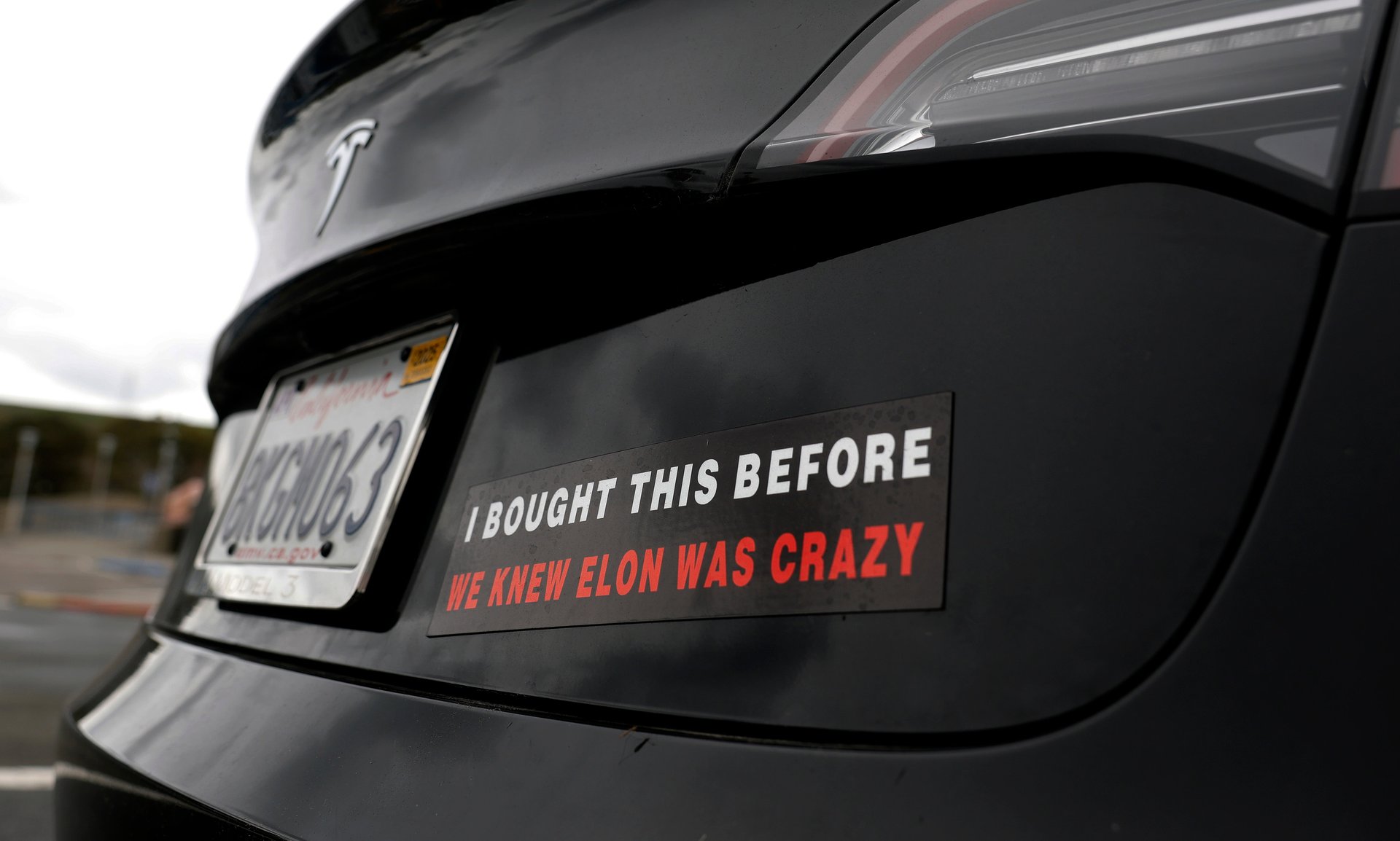Tesla just dropped below a key threshold in America's biggest EV market
The automaker’s share of California’s EV market dropped below 50%, even as electric vehicle sales increased overall

Tesla (TSLA) is no longer selling the majority of electric cars registered in the U.S.’s biggest electric vehicle market. The automaker reportedly lost significant ground in California, which accounts for almost a third of all zero-emission purchases in the country
Suggested Reading
According to a publication sponsored by the California New Car Dealers Association (CNCDA), Tesla’s share of the state’s EV market fell to 43.9% in the first quarter of this year from 55.5% a year ago. Tesla registrations in the first quarter of 2025 fell over 15% from a year earlier — while registrations for all other EVs increased by 35%.
Related Content
Per the CNCDA’s report, Tesla sold 43,322 vehicles in California during the first three months of the year — and it had the two top-selling EVs: the Model Y SUV and the Model 3 sedan. The Honda (HMC) Prologue, Hyundai (HYMTF) Ioniq 5, and Ford (F) Mustang Mach-E (all SUVs) rounded out the top 5. The controversial Cybertruck ranked eighth among EV sales in the state. The Model 3 remained California’s best-selling “near luxury” car.
The report said that “an aging product lineup and backlash against Elon Musk’s political initiatives are likely key factors for the decline” in Tesla’s market share.
This is the latest hit for Tesla in a series of them.
In early April, Tesla reported its worst quarterly sales in years; its 336,000 delivered units were well below Wall Street’s already low expectations. Last week, the company quietly pulled options to buy its Model S and X EVs from its website in China.
A lot of the company’s decline has been attributed to Musk, the company’s CEO, whose close ties to President Donald Trump (and role as the head of the cost-and-job-cutting Department of Government Efficiency) and other controversial comments have made the brand a target for people looking to protest governmental policies. Nonviolent, anti-Tesla protests have popped up across the globe, while vandalism against the company’s vehicles and facilities has increased.
The “unprecedented” brand damage Tesla is suffering has even surprised analysts at JPMorgan Chase (JPM), who had already described the backlash against Musk as without equal in the history of the automotive industry.
“Tesla’s 1Q sales and production report causes us to think that — if anything — we may have underestimated the degree of consumer reaction,” JPMorgan analysts led by Ryan Brinkman said in an early April note.
The automaker wasn’t able to take advantage of a recent tariff-related bump in retail sales as consumers rushed to buy big-ticket items such as cars before Trump’s auto tariffs would go into effect. While Tesla’s cars are built in facilities in California and Texas, the company relies on imported parts that could be hit with higher tariffs in early May. Musk spoke out about the tariffs (and went after one of their architects) when they were announced.